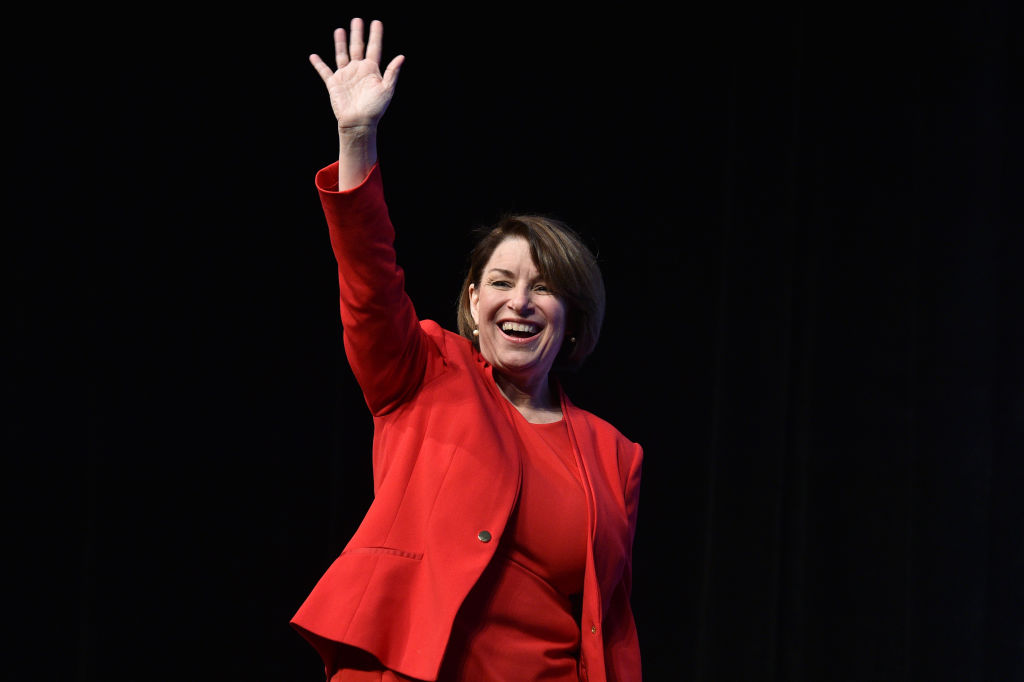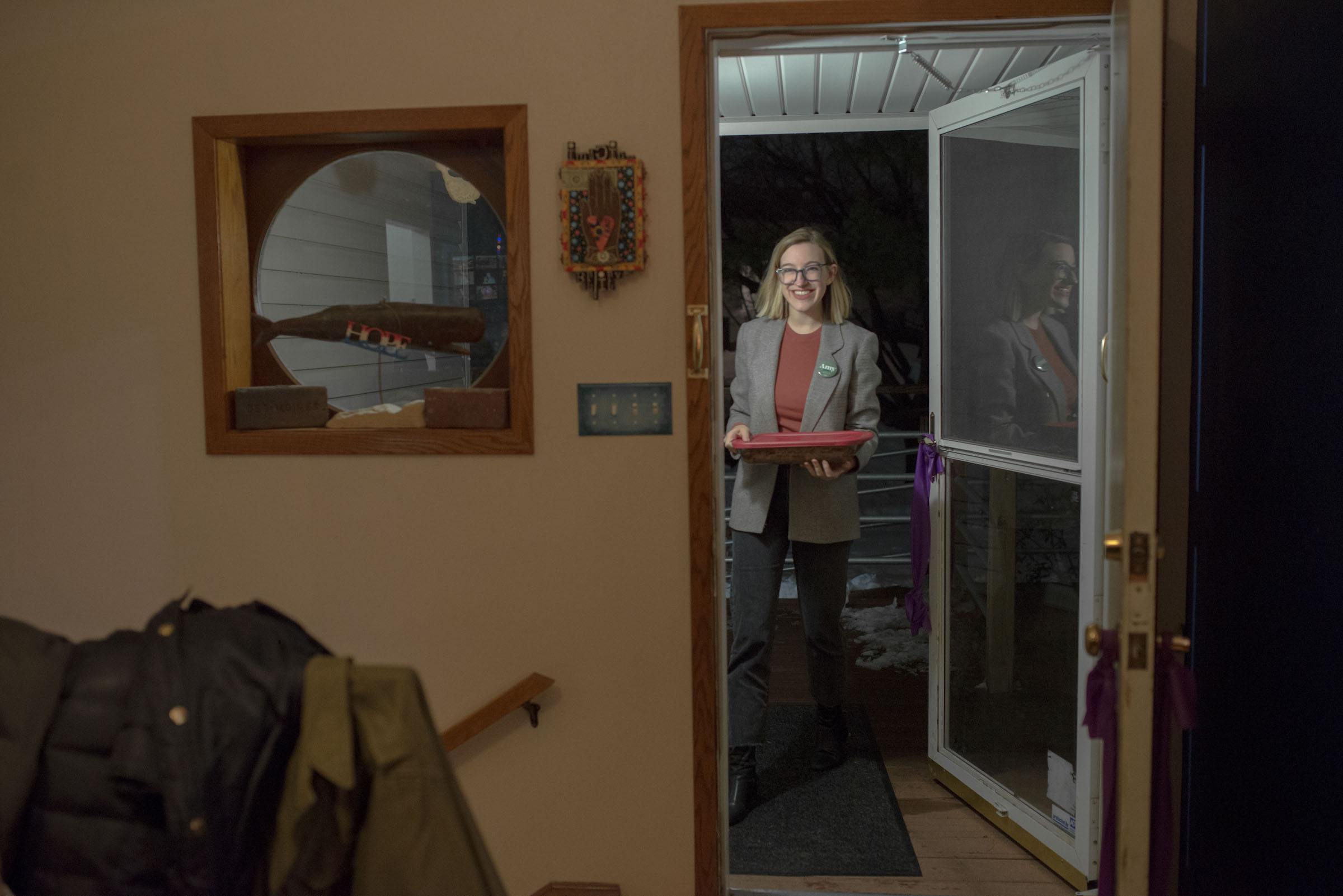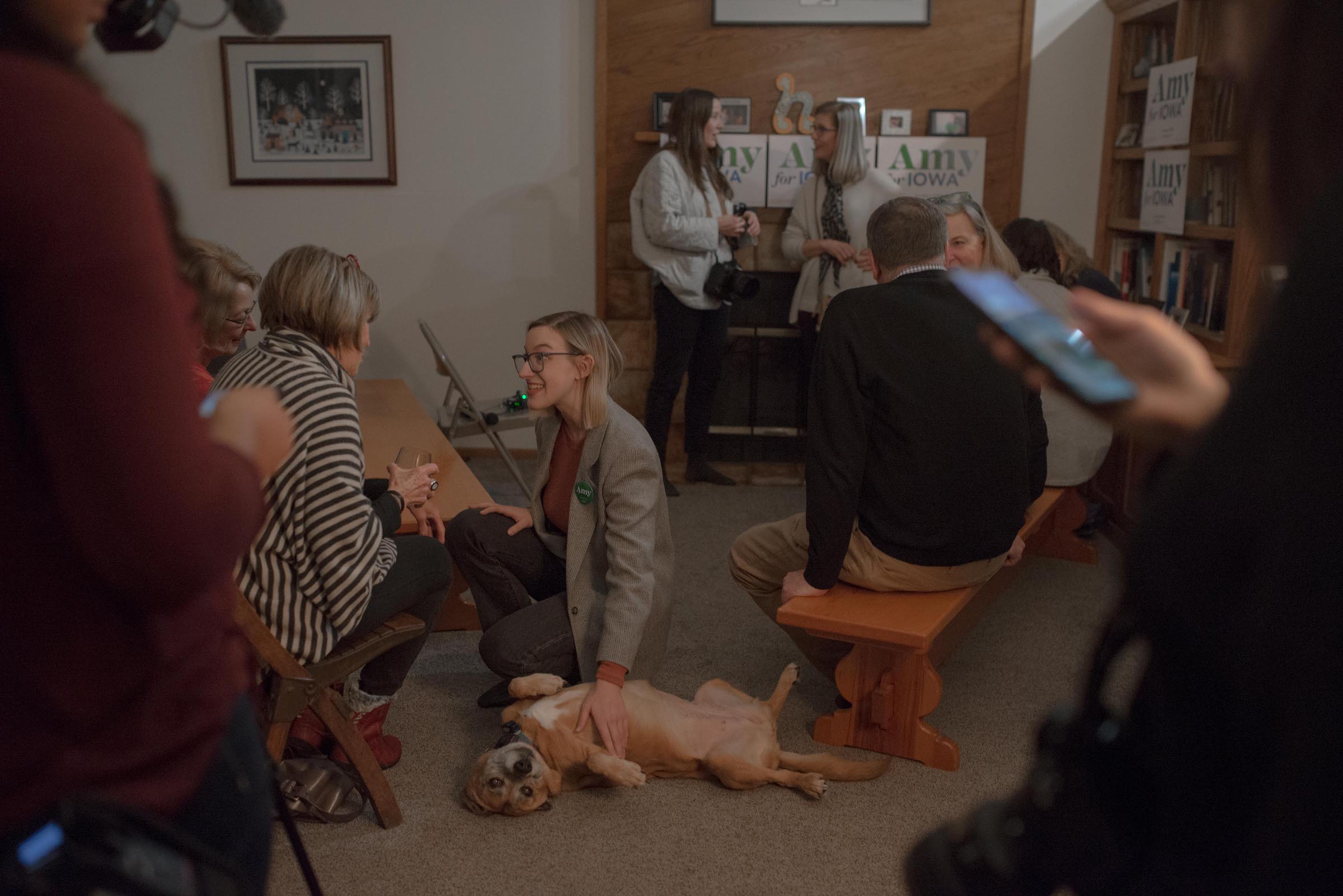
Amy Klobuchar has a young person problem, and she knows it.
While the three-term Minnesota Senator is modestly popular with middle-aged Americans—she polls at 6% among people ages 50 to 64, according to a December Quinnipiac poll—she’s not even on the board among voters under 30. She is polling at zero percent among those under 35, and at 1% among the entire 35 to 49 set.
In the days before the first caucuses in Iowa on Feb. 3, those dismal numbers matter. Young people are the reason that Sen. Bernie Sanders is now at the top of most national polls, and that Sen. Elizabeth Warren is still among the top of the heap. Nearly 40% of voters under 30 said they supporting Sanders, while 20% backed Warren, according to a November poll. And while politicians have long won without the support of young people, who tend to have low turnout numbers, that’s changing. One recent poll found that more than a third of Iowans under 30 say they are “extremely likely” to caucus. If that percentage actually shows up, it would represent a three-fold increase over youth participation in 2016.
So the Klobuchar campaign is amping up its youth outreach. In recent days, it has deployed Klobuchar’s college-aged daughter, Abigail Bessler, to campaign events in her mom’s absence, and opened a satellite office in Iowa City, the town that surrounds the University of Iowa. A campaign official tells TIME they are considering hosting more tele-town halls geared towards younger voters, featuring topics like combating climate change and securing jobs in the 21st century.

“She’s been talking about a lot of issues that are extremely important to young voters,” a senior campaign official told TIME. “She is someone who is really on the front lines, especially in the 2020 race, in talking about automatic voter registration,” the aide added, as an example.
Some young Iowa voters say Klobuchar simply failed to reach out to students and young people in the same way that other candidates did. Warren’s campaign, for instance, assigned organizers to both Iowa State and the surrounding city of Ames, and the Massachusetts Senator visited the campus at least twice last year. Klobuchar did not have any public events on campus in 2019 at all.
“Amy’s losing out on two fronts,” Sehba Faheem, the president of Iowa State’s College Democrats, told TIME. “She’s not able to show her face to students, and she’s not able to learn from them and figure out what they want.”
“You have to be investing on the ground and investing in students,” she adds, “so that they can invest in you.”
Other young Iowa voters say Klobuchar’s lackluster popularity among the youth might simply be endemic to her candidacy. In a political era defined by ambitious policy proposals and searing partisanship, Klobuchar has built her White House run on an exact opposite set of themes. She has offered a cautious policy agenda, called for compromise, and touted her reputation for bipartisanship. She likes to remind voters that she is the Senator who had the second-highest number of bills with at least once co-sponsor from an opposing party in 2019. In an era of revolution, moderation is a tough sell.
“It’s a little bit better when a progressive stands up there, or anyone with bold ideas,” Tate Rasmussen, a 20-year-old senior at Iowa State, who plans to caucus for Sanders, told TIME. “Moderates don’t excite us like that.”
Folks from Klobuchar’s campaign argue their candidate does have forward-thinking, plausible ideas that can excite younger voters. But they also say they need to increase their outreach about those plans. “Her plans are not the ‘give-it-all-away’ free-college-for-all approaches, but she does have some solid solutions here to make college more affordable—and it’s about communicating that [to younger voters],” the campaign official said.

Climate change and health care—two top issues for young voters—are two other instructive examples. Where candidates like Sanders and Warren who are popular among young voters champion Medicare for All, Klobuchar offers a public option through the expansion of Medicare or Medicaid. Where Sanders and Warren propose a nationwide ban on fracking, Klobuchar promises to regulate the method better. And while Warren commits to investing $10.7 trillion towards sustainable infrastructure and pledges to achieve domestic net-zero emissions by 2030, Klobuchar’s plan is distinctly more modest. She commits to investing $1 trillion toward environmentally conscious infrastructure and pledges to achieve domestic net zero emissions by 2050. On both issues, Klobuchar offers solutions that may stand a chance of earning moderate Republican votes, even if they don’t appear to set young hearts alight.
But young voters, like any demographic group, are hardly a monolith and there’s room, Klobuchar’s campaign insists, to garner more support. Faheem, despite her critiques of Klobuchar’s lack of campus engagement, say she still likes what Klobuchar stands for. Warren is her first choice, but Klobuchar, she says, is in her top three.
Julie Anderson, a 19-year-old studying agriculture and political science at Iowa State, offers an even sunnier view of Klobuchar’s prospects among the youth. The Minnesota Senator might not offer visionary policy proposals, but her measured approach to affordable college and healthcare is appealing, she says, because it positions her well to beat President Donald Trump in a general election. “It’s not that we’re not ready for [radical change], it’s not that we don’t need it,” Anderson says. “I just don’t think it’s possible to go from opposite ends.”
The teenager’s argument is ultimately pragmatic—a central hallmark of Klobuchar’s campaign.
More Must-Reads From TIME
- The 100 Most Influential People of 2024
- Coco Gauff Is Playing for Herself Now
- Scenes From Pro-Palestinian Encampments Across U.S. Universities
- 6 Compliments That Land Every Time
- If You're Dating Right Now , You're Brave: Column
- The AI That Could Heal a Divided Internet
- Fallout Is a Brilliant Model for the Future of Video Game Adaptations
- Want Weekly Recs on What to Watch, Read, and More? Sign Up for Worth Your Time
Write to Abby Vesoulis / Ames, IA at abby.vesoulis@time.com